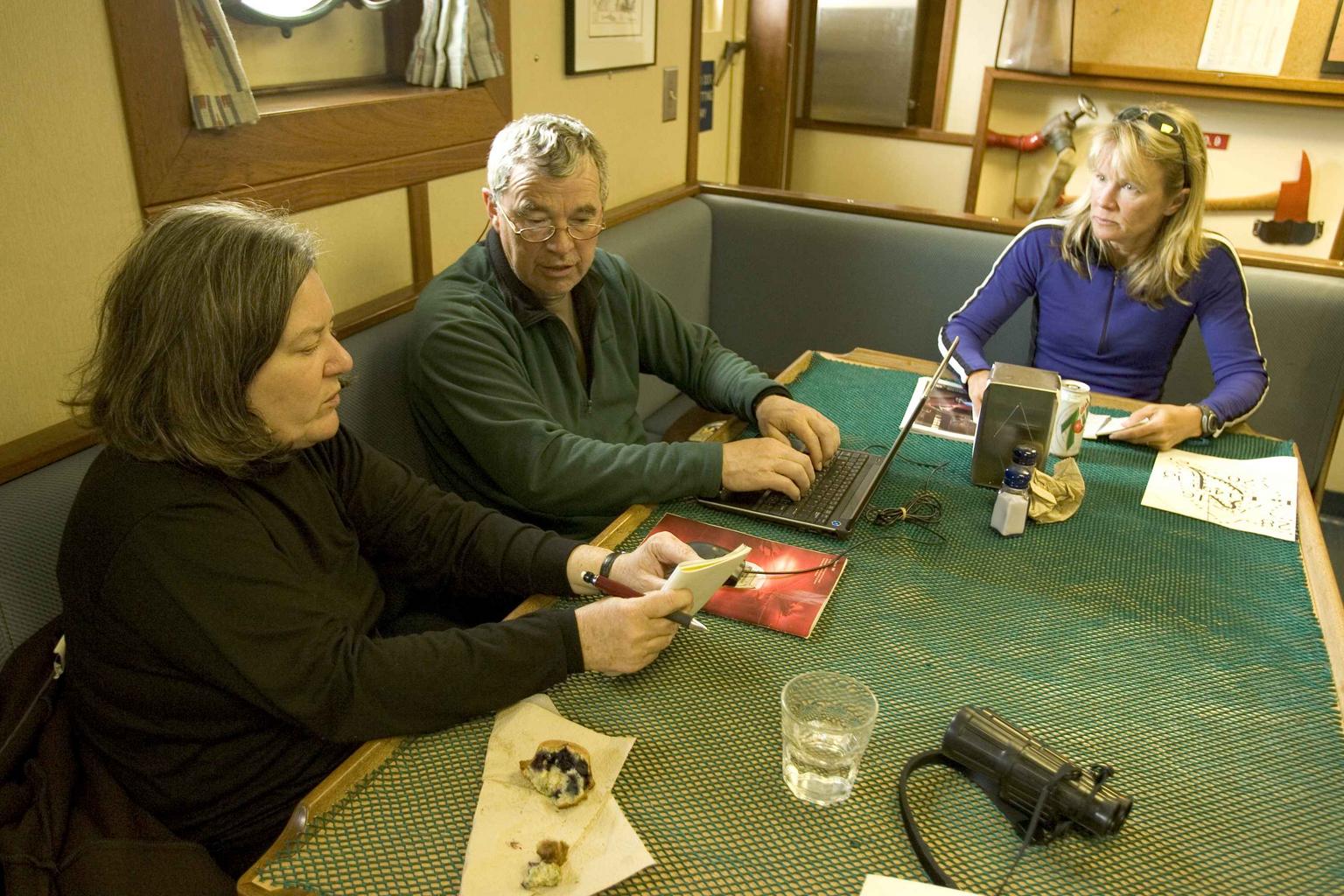Do you ever find yourself taking on the negative energy of others? If so, you are not alone. Most of us come in contact with numerous people every day – who bring us down.
We all feel it. We know when we are with someone who is high-spirited and happy or someone who is low and unhappy, but why is it so easy for others to affect us in negative ways? Some of us cannot even go into supermarkets without taking on the woes of everyone in the store. In order to shield ourselves from negative energy, we must first understand how our energy is infiltrated by others.
I worked as a crisis counselor at a well-known crisis center in New York for about seven years. I quickly figured out that if I was going to be successful at helping people, I couldn’t take on any negative energy. Because I uncovered the secret to keeping my energy clean and clear, I was able to assist thousands of people in dire need without once being adversely affected, and in fact, I consistently felt energized and fulfilled. If I can do it, anyone can.
Energy Infiltration
Whenever you encounter someone, whether in the morning rush to the bathroom or over the conference table, an exchange of energy is at play. There is your energy and there is the other person’s energy. At some point in space the energies meet. If you could be a fly on the wall, you would witness an interesting dance of vibration – with the strongest energy leading the dance. This means that if you are not centered in your energy field, your energy could be infiltrated and influenced by that of your friend, spouse, child, friend, parent or perhaps a stranger. So even if you are having a good day and you meet someone who is spewing their bad-day-energy onto you, your good day will likely turn bad.
You have been hit by Energy Infiltration.
This all happens without consciousness, but what if you actually brought a higher state of consciousness to all your interactions and relationships? What if you could be responsible with your energy and not be negatively affected by anyone’s lower vibe? What could this do for the quality of your life? And, for the quality of your relationships?
If you are going to protect your personal energy, you must first realize that your energy is your most valuable resource. In other words, how you feel on any given day is your greatest source of power and attraction. If you feel good, you are more connected to your power and to your ability to consciously create. If you feel down, you are less connected to your power and you are likely unconsciously creating – more of what you do not want. When we allow the negative or incongruent energies of others to affect our energy, we give away our power and we lower ourselves vibrationally to a level where we do not have the ability to consciously create.
This means that it is all about you, and you don’t have to change anyone but yourself.
This is why it is essential to make “how you feel” the most important part of every day, and not compromise your energy for anything or anyone. So, how do you do it?
Reclaiming Your Energy and Preventing Infiltration
1. Don’t Use Negative Emotions as Tools for Connection
It’s natural to want to connect with others, but we often do this unconsciously by matching emotions. In other words, if your friend is sad, you become sad in order to connect with her. Or, if your partner is annoyed at something, you mirror that annoyance in order to get on the same wave length. The thing is, every time we use negative emotions as tools for connection, we compromise our own energy, and even if we want to help our friend, spouse, child or co-worker, we cannot offer effective support or guidance at the low emotional level of the problem. How can you help anyone if you are suffering with them?
If your friend is depressed, you don’t need to become depressed in order to connect with him. It is possible to offer compassion and understanding without compromising your energy. If you can maintain a higher level of emotional vibration, you can be of greater service, simply by creating a safe space for your friend to express his feelings without bringing you down.
2. Let Go of Responsibility
The quickest way to be affected by another’s negative energy is to feel responsible for them or their experience. Every time you feel responsible for another, you take on the responsibility as if it belongs to you, and your body, mind and spirit responds as if you really are responsible and you must fix the problem. In other words, you take on worry, stress and pressure that belongs to someone else.
Feeling responsible for another is like accepting their baggage as your own; hence, walking around with their weight on your shoulders. How many people can you do this for without getting overwhelmed or even sick? Sometimes our illnesses are the result of carrying problems that aren’t even ours. How much of what you carry doesn’t even belong to you? Really think about this.
No matter how much you care about someone, you are not responsible for them or their issues. You are responsible for you and your experience of them, but not for them.
Don’t think that you can help someone by taking on their stuff as your own. The best help you can ever provide is through keeping your vibe high and inviting others up to meet you. They may or may not come up, but that is also not your responsibility.
Once you release responsibility, you can actually show up in a more responsive way and possibly be of service, instead of part of the problem.
3. Stop Playing Judge
The act of judging immediately connects us to the source of our judgement. This means that if the other person’s emotional vibe is low, your vibe will quickly match. Thereby compromising your energy in exchange for judgment.
As soon as you judge someone’s experience, even if it is silently to yourself, you invite the energy of their experience into your own energy field. Because the mind does not know the difference between real and imagined, judging something about another opens you up to taking on the energy of whatever you are judging, as if it is happening to you. This includes gossip.
When we allow everyone their own experiences, we don’t take on their energy or the energy of their issues. If it is not about you, keep out. Your mental interference in someone else’s life is not worth the risk to your energy.
4. Drop the Sympathy
The moment you sympathize with someone, you energetically take on the symptoms of the person you are feeling sorry for. Yes, sympathy is when you feel sorry for someone. This means that you can catch a cold over the phone or feel pain in your body when you experience sympathy for another.
Feeling sorry for someone is actually judging their experience – so when you feel sorry for someone, you lower your vibe to match theirs – taking on all that negative energy.
When you feel sorry for another, you are actually imagining that they are stuck in their predicament and they are powerless to heal, change or consciously create a new reality. How does it help anyone when you are imagining the worst?
You cannot feel sorry for someone and imagine them empowered at the same time. When you imagine others empowered, you also empower yourself and raise your own vibration.
The evolution of sympathy is compassion. Compassion allows you to maintain a space of love and understanding for others without compromising your energy in any way. Can you love someone and allow their experience without feeling sorry for them? Can you trust that their experience is somehow perfect for growth, evolution and awakening?
5. Don’t Give Anyone Power Over You
We tend to allow our energy to be influenced by those who appear to have power over us: parents, teachers, bosses, authority figures, etcetera. If someone in authority is having a bad day, and spews it on us, we don’t hesitate to accept it, or maybe we even allow these people to dictate how we feel about ourselves
When you remember that everyone is a reflection of your own consciousness, it is easy to see that no one ever has power over you. They only have the power that you give to them through your thoughts beliefs and actions.
The more you own your power, the more control you will have over your vibration – and not take on energy that does not belong to you.
6. Let Go of Thinking That You Know Better
When we think that we know better and we try to change others, we instantly allow their energy to infiltrate ours. If you don’t want anyone to affect your energy, then it is important to allow everyone their own experiences and their own choices. Don’t even have opinions about their opinions. In trying to convince someone of your “know-how,” you are likely to compromise your own energy. Remember how you feel is your most important asset – sacrifice it for nothing and no one.
7. Stop Reacting to Others
Are there people in your life who attempt to get their energy through drama? In other words, they try to invoke negative emotional responses from you, in order to “get energy.” Maybe you are even doing this unconsciously to others?
The moment you react, you give your power away and you also accept the negative energy of the person causing you to react.
In order to be angry, resentful, jealous, etcetera, you must lower your vibration, and as soon as you are an emotional match to the other person, their energy infiltrates yours.
If you want to own your energy and stay positive, it is just not worth reacting. The cost is too great. This doesn’t mean that you cannot speak your truth and set boundaries in a way that supports you and the relationship. This can be done from a space of clarity and compassion.
8. Don’t Take Sides
Others may want to use your energy to support their cause, but if it is not about you, don’t make it about you. Allowing yourself to get in the middle of another’s squabble or cause, when you know it doesn’t concern you, is basically a waste of your valuable energy. You can support others without getting in the middle, and without allowing your energy to be poisoned by another’s issues.
9. Do Not Accept Blame
Even if someone blames you or is angry at you, you don’t need to take on their energy. My five year old grandson spilled his ice cream in the car and blamed me because I hit a bump in the road. We talked about him blaming me so that he could feel better about the loss of the ice cream, but he really felt worse. People blame us all the time for things that are out of our control. Just because someone blames you, doesn’t mean you have to take it on. If you are responsible, be responsible and rectify the situation, but don’t allow yourself to be someone else’s scape-goat. You do not even need to react to the blame – just let it pass.
10. Say “No” to People Pleasing
If you are a people pleaser, you are likely very good at giving your energy away and therefore being affected by other’s energy. Because people pleasers put others before themselves, they are not responsible with their energy and therefore they become energy sponges for everyone whom they are trying to please. It is not your job to please the world. In fact, you would do much better at pleasing others if you first pleased yourself, putting your own needs and wants in first place. It is okay to say, “No” and set boundaries that create a safe haven for you to be responsible for your own energy.
11. Stop Believing Others Beliefs
When two people meet, the one with the stronger beliefs about life often dominates the energetic dance, but only if you are not grounded in your own beliefs. You may consider various beliefs presented by others, but don’t be bullied by someone who thinks that they know best. Sometimes others will even think that they know what is best for us and they try to infringe their beliefs upon us in the name of caring, but only you know what is best for you. Follow your own inner guidance.
12. Mind Your Own Business
This might be a hard one, but it is none of your business what other people think about you. You cannot please all the people all the time, but it is also not your job to please anyone. It only matters what you think, and feel, about you. As long as you try to control other people’s thoughts and feelings about you, you subject yourself to their energy. It’s like you are telepathically saying, “Please tell me how I should feel about myself today.” When you no longer have interest in what the world thinks about you, something truly amazing happens. Your confidence soars and you become super attractive – energetically and even physically. As a result, others will actually think more highly of you, but you won’t care, and that is the point!











